Huawei held its highly anticipated Huawei South Africa Connect 2025 in Johannesburg, bringing together more than 2 900 leaders from government, business and the technology sector to explore how intelligent technologies can power the country’s advance from digital adoption to intelligent transformation.
Themed Accelerate Industrial Digital Intelligence for South Africa, the event focused on how artificial intelligence, cloud computing and smart platforms are reshaping industries — moving beyond connectivity to build a truly intelligent and sustainable future, enabling industry growth, unlocking inclusion and driving long-term national development.
At the event, communications & digital technologies minister Solly Malatsi noted that South Africa has developed four measurable ministerial priorities:
- Expanding connectivity and access to devices;
- Building a digitally skilled society;
- Unlocking the productive use of technology; and
- Creating a supportive environment for inclusion and investment.
These four priorities aim to build an innovative and high-performing digital ecosystem for all South Africans.
“South Africa is not only embracing new technologies, but we are helping to shape how they apply across the continent and the globe. We recognise that digital transformation is a powerful driver of innovation, efficiency and inclusion. From rural clinics offering visual consultations and learners accessing online education, to township entrepreneurs taking full advantage of technological solutions to market their products beyond the boundaries of our country, we have seen its true impact here at home,” Malatsi said.

Will Meng, CEO of Huawei South Africa, delivered the opening address, describing digital transformation as the foundation for economic growth and national progress — but emphasising that South Africa is now entering the age of intelligence, where cloud, AI and smart systems will define the next chapter of development. “We stand at the dawn of the age of intelligence, where AI, cloud computing and smart systems are revolutionising industries, unlocking opportunities and redefining efficiency. At Huawei, our goal is very clear – to accelerate South Africa’s journey to industrial digital intelligence, driving innovation, boosting productivity and ensuring long-term competitiveness, because technology is a tool for people, empowering communities, uplifting lives and building a brighter future,” said Meng.
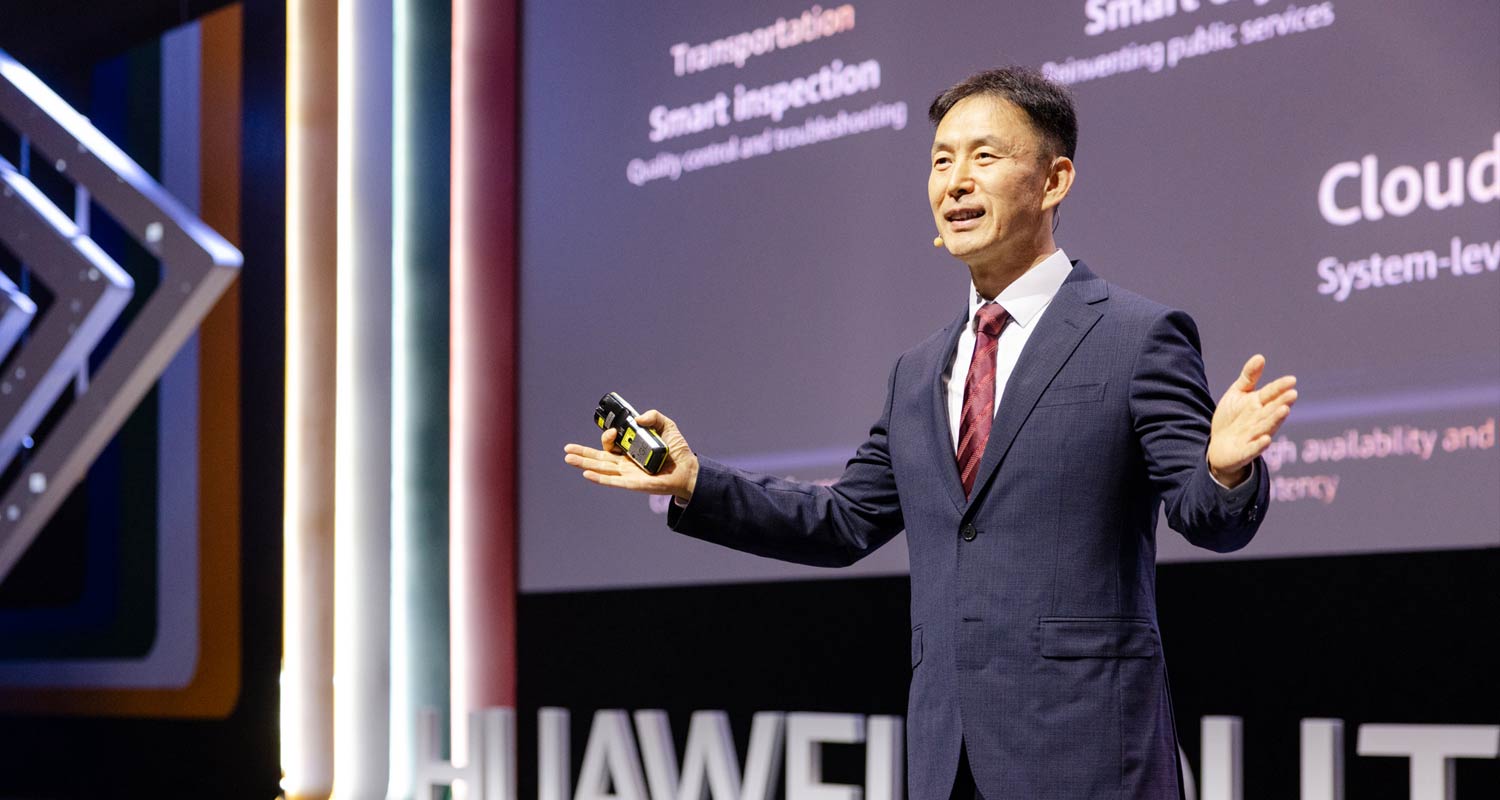
As intelligent transformation becomes central to industry evolution, Joy Huang, vice president of Huawei Cloud, shared how Huawei’s cloud-first approach is enabling AI innovation across sectors. “Huawei Cloud is dedicated to offering AI-native cloud services. By innovating with our customers and partners together to accelerate AI-driven innovations and implementing our ‘Cloud for AI’ and ‘AI for Cloud’ strategies, we aim to expedite intelligent transformation across industries in South Africa.”
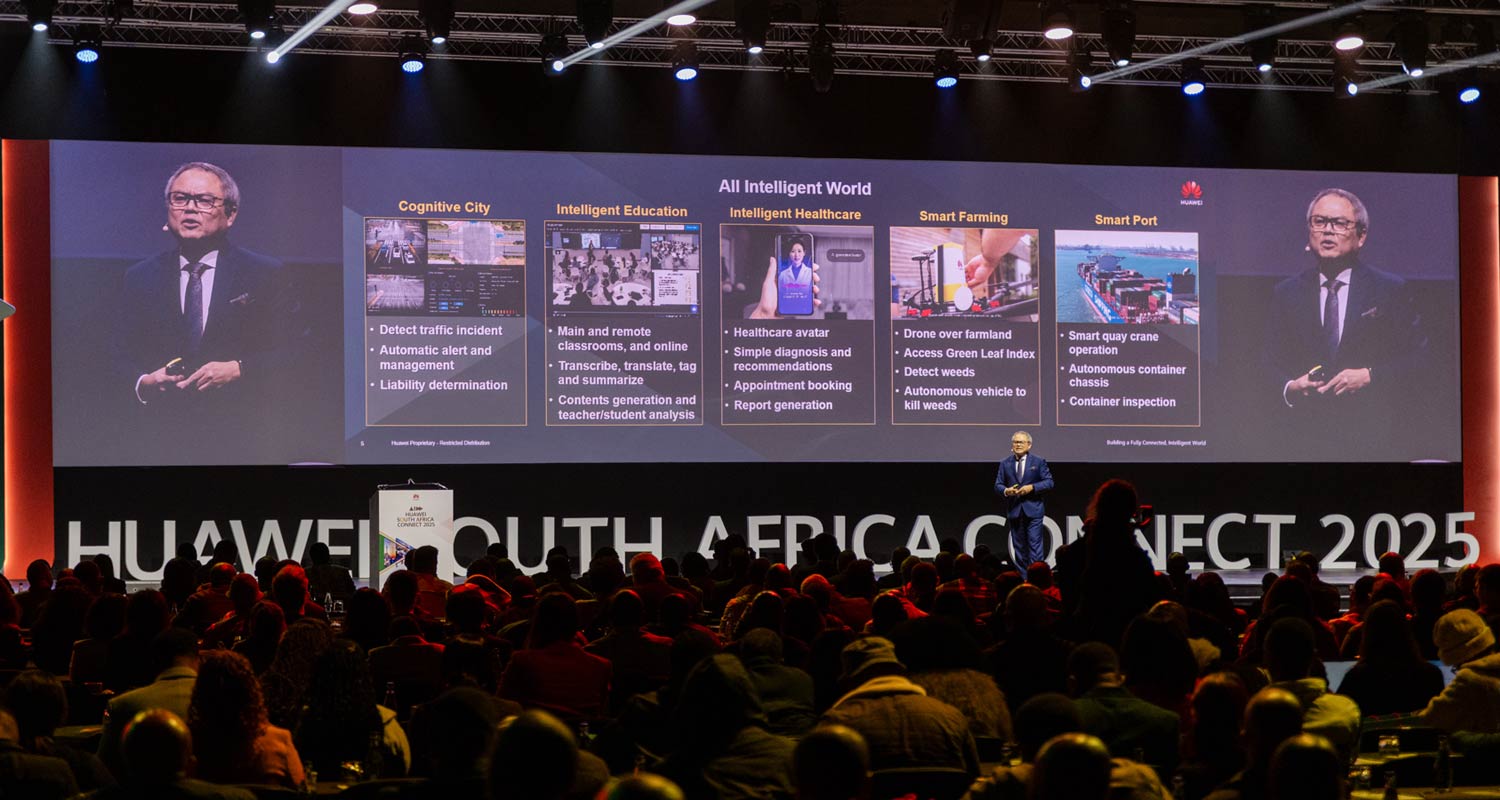
Hong-Eng Koh, global chief public services industry scientist at Huawei, outlined the broader shifts driving the new era of transformation, cautioning that successful adoption depends on more than infrastructure and platforms. “Digital transformation is not about technology, it’s about transforming your business to make it relevant. But getting ready for the intelligent world requires several critical elements to ensure success: governance and structures must reflect this evolving landscape; laws and regulation must be protective without being restrictive; and we must invest in skills and talent, security and sovereignty, and sustainability.”
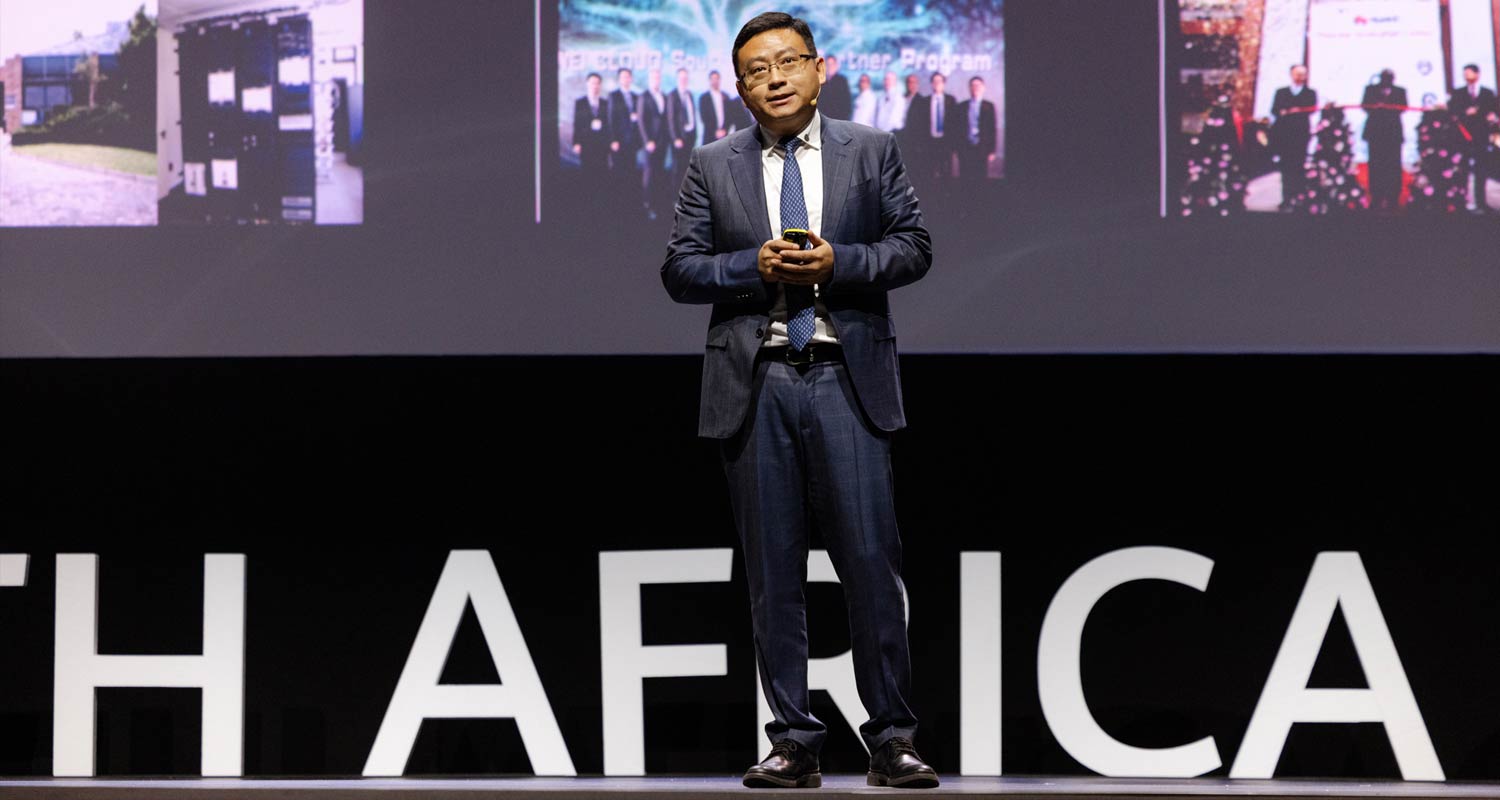
Gene Zhang, CEO of Huawei South Africa Enterprise Business, further introduced Huawei’s deep commitment to South Africa’s intelligent transformation journey, drawing on 26 years of local innovation and collaboration. He emphasised that Huawei’s strategy has evolved through key phases — from building foundational connectivity, to cloud adoption, and now embracing an All Intelligence strategy which includes a reference architecture, four enablement models, and over 200 industry solutions to help accelerate digital and intelligent transformation across finance, government, education, healthcare, transportation, energy, internet service providers and more.
“With a deep understanding of diverse industry needs, Huawei has developed a comprehensive six-layer reference architecture that spans intelligent sensing, connectivity, foundational platforms, AI models and industry-specific applications. This open and collaborative framework empowers businesses to accelerate their intelligent transformation with greater agility, security, and trust,” said Zhang.
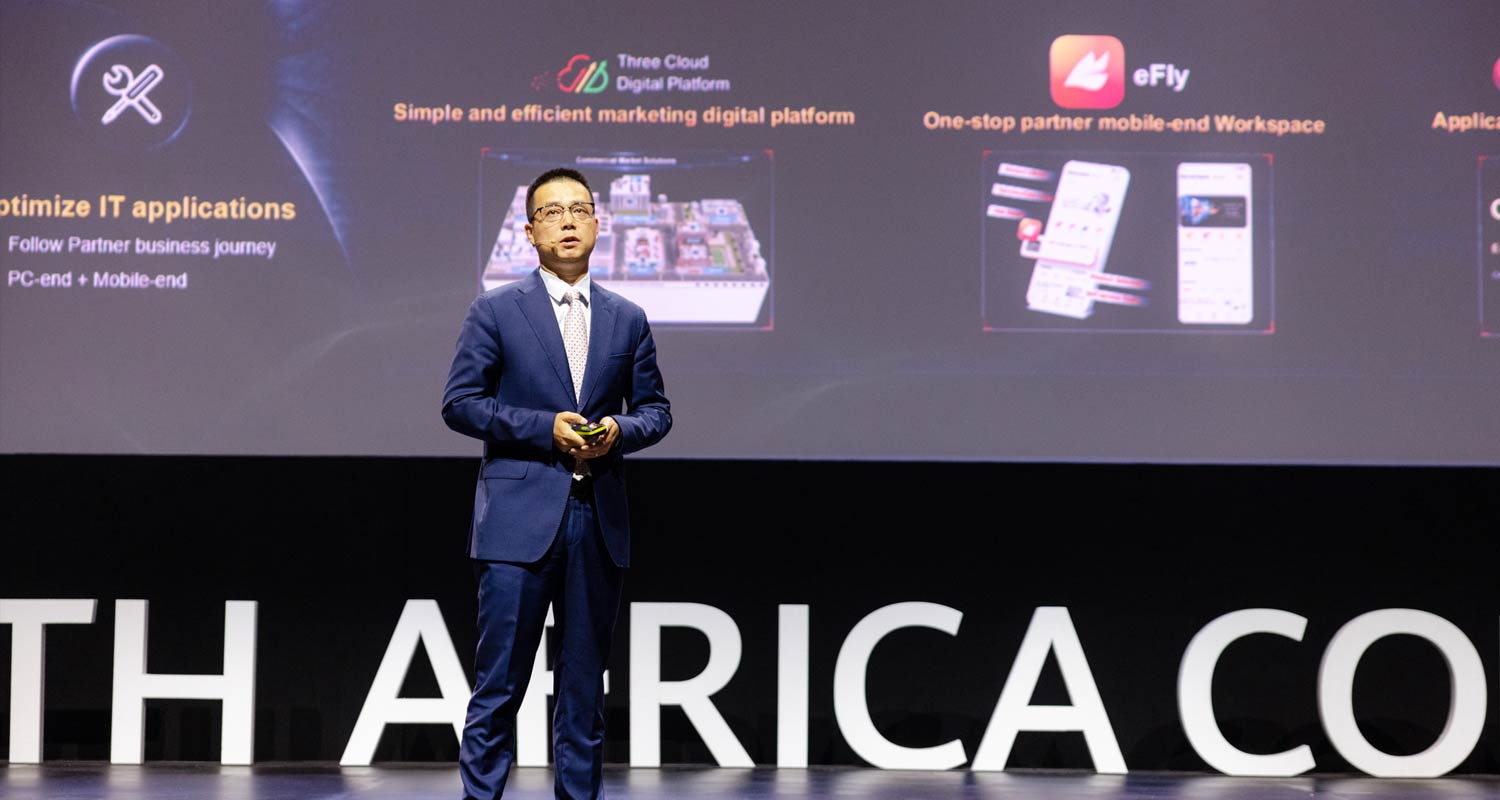
Partnerships were highlighted as another cornerstone of Huawei’s strategy. Peter Zhang, vice president of global partner commercial and distribution, enterprise sales, Huawei, emphasised the importance of ecosystem collaboration to achieve shared transformation goals. “Our strategy in the government and enterprise market is ‘Partners + Huawei’. Huawei attaches great importance to partner development and will constantly enhance investment and support for partners.”
In South Africa, Huawei has collaborated with more than 1 400 local companies to jointly address customers’ digital and intelligent transformation needs. Additionally, leveraging over 3 000 courses covering 22 technical categories, Huawei aims to train over 50 000 ICT professionals in the region by 2028.
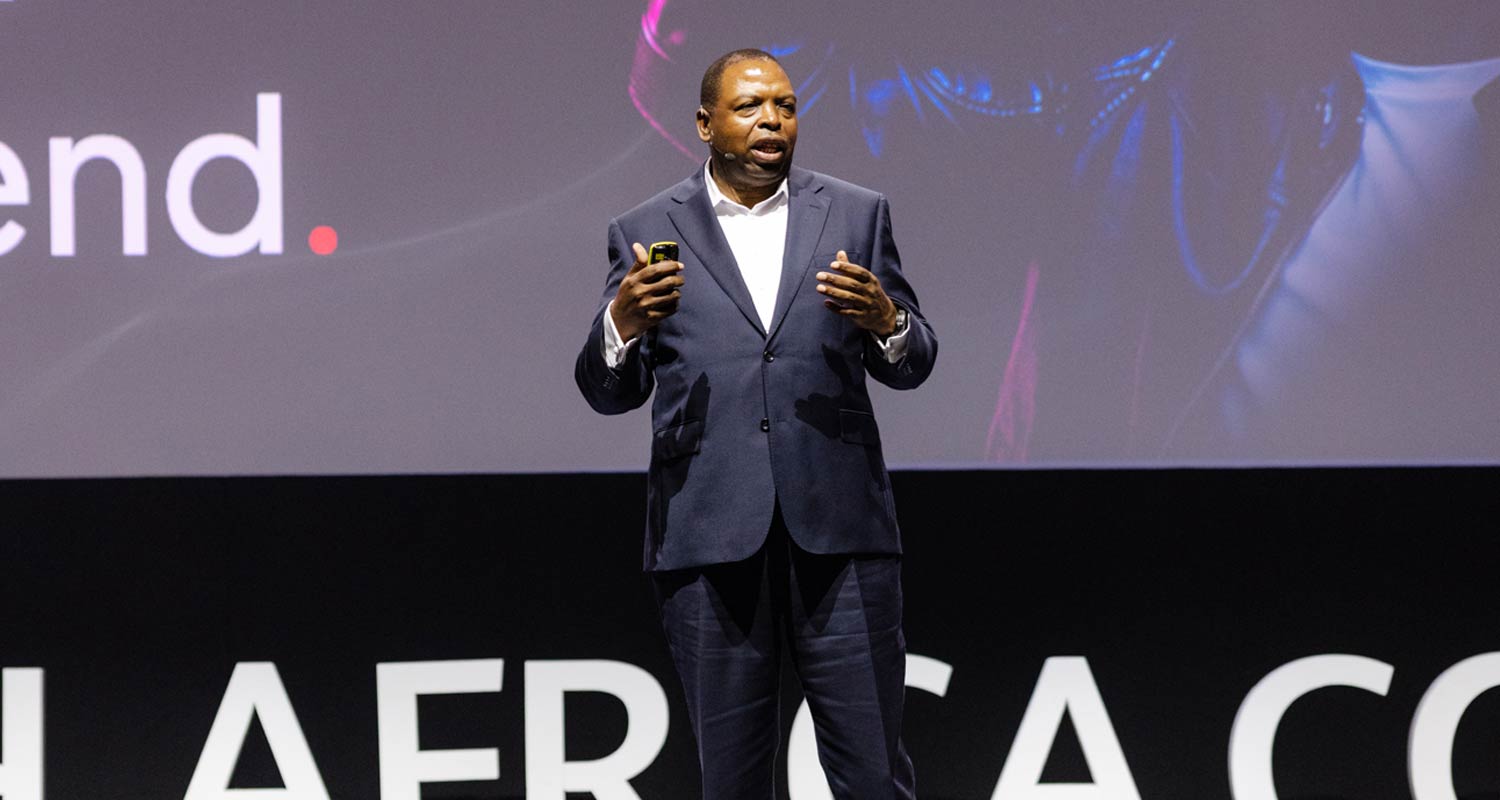
At the event, Jonas Bogoshi, CEO of Business Connexion Group (BCX), and customers from sectors like government, transportation, electric power, finance and internet service provision, shared their success stories of digital and intelligent transformation.
“The world has changed. For us to be relevant, we must create value at scale. And if we want to create value at scale, then we have no option but to invest in digital technology. But for South Africa to truly benefit, isolated innovations won’t suffice. We need to focus on building ecosystems that digitise public services, improve lives, reduce inequality and develop digital talent. Therefore, we need to invest in technology that will allow enterprises to become a node in a more connected, more intelligent economy. Only then can we realise the full dividend of digital transformation,” said Bogoshi.
Two dynamic panels were held to deepen discussions on South Africa’s digital future. The “Amplifying Public Sector Digitalisation” panel featured Peter Mafagana from ACTO, Broadband Infraco; Roche Mogorosi, CIO at Gauteng’s department of education; Len De Villiers, CTIO of Eskom Group; and Ayanda Saki, GM: application, data and channels at Prasa Group, who explored ways to accelerate public sector digital transformation.
Additionally, the “Accelerating Industry Intelligence” panel brought together Khomotso Molabe, CIO of personal and private banking at Standard Bank Group; Francois Swart, chief digital officer of Maziv Group; Garth Messina, head of infrastructure at Woolworths; and Victor Thobakgale, group technology operations lead at African Rainbow Minerals, focusing on how intelligent technologies can drive innovation and efficiency across industries.
A thriving ecosystem
Huawei has been doing business in the country for 26 years, its presence led by the ethos “In South Africa, for South Africa”. Huawei has consistently provided leading ICT infrastructure on top of talent development and technological innovation platforms to further the development of South Africa’s digital and intelligent economy. Moving forward, Huawei will continue to work closely with customers and partners, gain profound insights into industry scenarios and needs, provide customised solutions, and jointly build a thriving ecosystem.
About Huawei
Huawei is a leading global provider of ICT infrastructure and smart devices. With integrated solutions across four key domains – telecoms networks, IT, smart devices and cloud services – we are committed to bringing digital to every person, home and organisation for a fully connected, intelligent world. For more information, please visit http://www.huawei.com/za.

